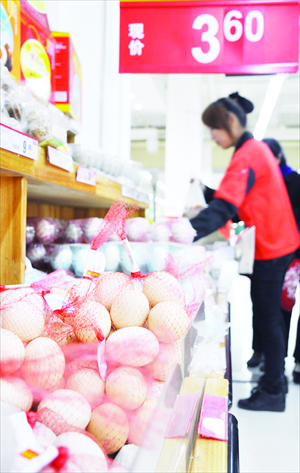H7N9 fear infects New Hope Liuhe

New Hope Liuhe Co, one of China's leading agribusiness operators, is suffering big losses due to climbing H7N9 fears, the firm told the Global Times Tuesday.
Since the H7N9 avian influenza outbreak started in late March, the sales of baby chickens and poultry have continued to decrease and the losses will be reflected in the company's financial reports, the firm's PR representative said.
The Shenzhen-listed company fell 3.77 percent to close at 10.72 yuan ($1.73) Tuesday.
New Hope Liuhe's sales of broilers in Shanghai and nearby cities have dropped by over 80 percent and the company is suffering from high inventory, the China Business News (CBN) reported Tuesday.
Many consumers are reluctant to eat poultry due to H7N9 concerns, and some local governments like Beijing and Shanghai have issued bans on poultry transportation and live poultry trading in a bid to prevent the deadly disease from spreading, leading to a major decline in poultry prices and consumption.
The current selling price of broilers has fallen to less than 2.5 yuan per kilogram, which is domestic poultry farmers' break-even point, Tang Chaoying, business manager of a poultry breeding plant in East China's Jiangsu Province, told the Global Times on Tuesday.
Tang has been running the business for 19 years but said that it is now hard for him to carry on, as many poultry farmers have given up chicken breeding and stopped purchasing baby chickens from his plant.
"I have an overstock of hundreds of thousands of baby chickens at present, which is causing my plant to lose 22,000 yuan every three days. Many of my peers have gone bankrupt," said Tang, who hopes local governments will subsidize the losses brought on by people's H7N9 fears.
The China Animal Agriculture Association estimated that by April 15 the baby chicken industry had felt a loss of over 3.7 billion yuan while sales of live poultry and chicken products decreased by 13 billion yuan, according to the CBN.
Some provinces and cities, including Jiangsu and Zhejiang provinces, Shanghai and Beijing, have issued corresponding subsidy policies which are also being considered in other regions.
The Beijing government has pledged to help the local poultry industry with subsidies reaching up to 90 million yuan, the China National Radio reported Tuesday, citing Zhao Genwu, head of the Beijing Municipal Bureau of Agriculture.
Compared to nationwide losses of over 1 billion yuan each day in the sector, the government subsidy amounts are insufficient, Wang Xiaoyue, a poultry industry analyst with Beijing Orient Agribusiness Consultant, told the Global Times on Tuesday.
Wang said that only big companies like New Hope Liuhe can get subsidies from local authorities.
He also noted that as increasing numbers of farmers stop breeding chickens, the insufficient supply is likely to cause a sharp jump in chicken selling prices after the H7N9 fears disappear.